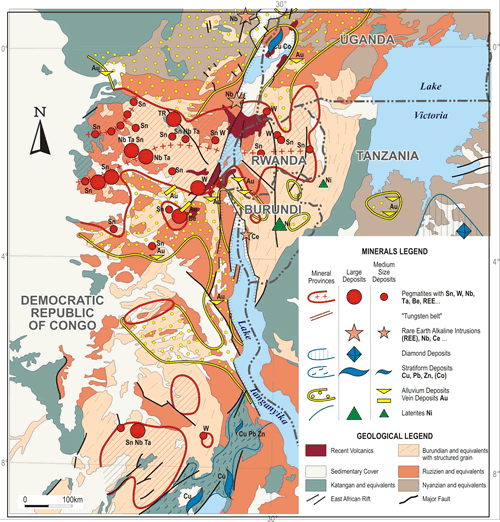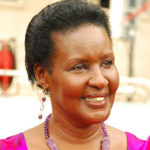Less than half of companies officially recorded as exporting minerals from Uganda, the eastern Democratic Republic of Congo and Rwanda published due diligence reports in 2015, according to a new study by Global Witness.

According to the ‘Time to Dig Deeper’ report, a national reporting rate of 70 per cent of exporting companies in Rwanda, 45 per cent in eastern Congo and zero in Uganda, was found.
Also, across the three countries, almost 75 per cent of the companies that published reports failed to mention any risks encountered in their work or how these were addressed.
The report released Wednesday is the ‘first ever detailed analysis of public supply chain due diligence reporting in the region’, Global Witness, an international NGO established in 1993 that works to break the links between natural resource exploitation, conflict, poverty, corruption, and human rights abuses worldwide’, indicates.
Due diligence was introduced in response to the well-documented links between the minerals trade, human rights abuses and the financing of conflict prevalent in parts of the Great Lakes region and elsewhere. It is mandatory for companies exporting certain minerals from Congo and Rwanda, according to their national laws.
“Millions of people rely on the difficult and often dangerous artisanal mining business for an income. Yet too many are exposed to human rights abuses, corruption or violence on a daily basis,” said Global Witness Campaigner Natasha White. “Due diligence is the steps companies can take to identify, address and be transparent about issues in their supply chains. It is a means by which they can do their best to ensure they don’t contribute to such harms and continue to source minerals from high risk areas in a responsible manner,” Ms. White added.
She noted that due diligence reports are a vehicle for sharing information on risks throughout the supply chain, and a crucial mechanism for ensuring that all the companies profiting from these minerals can be engaged in addressing the problems associated with them.
“This is the honest and responsible way to do business; if profits are shared along the supply chain, then responsibility should be too,” she adds.
In terms of reporting quality, Congo came out on top. Six Congo-based companies were transparent about at least one risk associated with their operations, compared to just one in Rwanda. No Ugandan companies in the study reported at all, showing that the country is seriously lagging behind in efforts to promote responsible mineral sourcing.
“Too many companies wrote generic one-pagers on what they commit to doing rather than what they have actually done. The seven companies that took steps to report on risk represent the beginning of a much-needed shift in the region’s minerals sector,” notes White.
Global Witness tracked minerals from Congo-based companies to six international traders based in Malaysia, Hong Kong, Belgium, Luxembourg and Rwanda. The reports of some of these companies were even less detailed than those of the exporters, despite their greater size and resources. From here these minerals would have been used in electronics, jewellery and industries the world over.
The Great Lakes’ gold sector is particularly high risk, yet it remains at the back of the pack in terms of due diligence reporting. Gold is a high-value commodity that can be easily smuggled and traded in small quantities. Global Witness estimates that 94 per cent of Congo’s gold left the country illegally in 2014. Only one of the 18 companies officially recorded as operating in the region’s gold sector in 2015 published a report for that year.
Key recommendations in the report include that all companies operating in and sourcing minerals from DR Congo, Rwanda and Uganda conduct and report on their due diligence. In DR Congo and Rwanda this is law.
The report also asks the companies to improve the quality of their reports. In particular, to include more detail about risks identified and how these were addressed with tangible reforms or actions.
And that DR Congo, Rwanda and Uganda monitor the due diligence and reporting efforts of companies in their jurisdiction, and – in the case of Congo and Rwanda – to sanction those that don’t comply.
Finally it asks Uganda to live up to its international commitments made in 2010, and to introduce a due diligence law like Congo and Rwanda have done, to ensure companies operating in and from its jurisdiction conduct due diligence.







